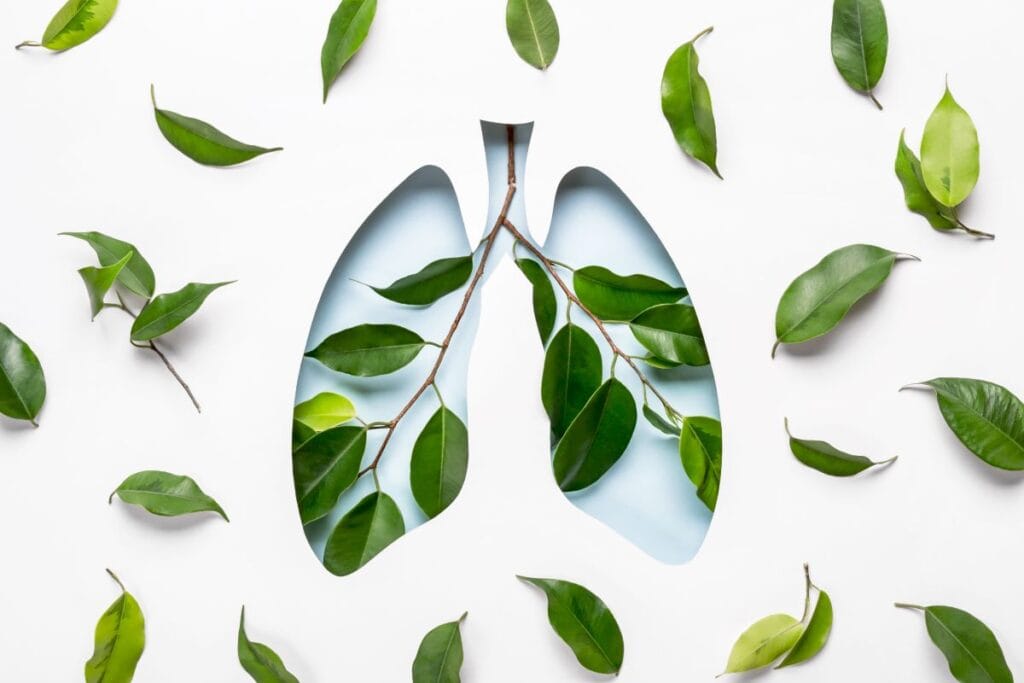We often take our lungs for granted. They keep us alive and well. This is why it is critical to prioritize your lung health. Your body has a natural defense system designed to keep dirt and bacteria out of your lungs. However, there are several critical steps you may take to lower your risk of lung illness.

Watch out for Air Pollution
Polluted air can be harmful to one’s health, but individuals with previous lung diseases are especially vulnerable. Exposure to air pollution can irritate, inflame, or even kill lung tissue. Children, the elderly, and those already ill with chronic diseases are more likely to become ill as a result of air pollution exposure. Keep an eye on your area’s air quality index; when it’s particularly awful outside, it’s best to stay indoors. However, when you need to venture out during periods of heavy air pollution, you should put on a reusable N95 mask.
Quit Smoking Gradually
There is no better time than now to start taking modest measures toward permanently quitting smoking.
Smoking not only weakens your respiratory system, but it also raises your risk of acquiring several dangerous diseases, including lung cancer. According to a recent study on smoking and lung cancer published in the National Library of Medicine, smoking is thought to be responsible for 90% of all lung cancer fatalities.
If you find it difficult to quit smoking on your own, the Department of Health (DOH) has established a smoking Quitline that you can call for advice on how to quit smoking. If you’re seeking people who are going through the same thing as you, consider joining a support group.
Eat Healthy Food to Strengthen Your Lungs
A diet high in certain minerals, such as magnesium, zinc, and vitamins A, C, and E, can help preserve the health and vibrancy of your lungs. Foods high in these nutrients, such as fresh fruit, yogurt, turmeric, pumpkin, green tea, and lentils, can help improve respiratory function.
Stay Hydrated
Water consumption is as essential for the health of the lungs as it is for the rest of the body.
The mucosal linings of the lungs can be kept healthy by staying hydrated and drinking water at regular intervals throughout the day. Thanks to thinner lining, the lungs can function more effectively.
Exercise Regularly
Since exercise increases the quantity of oxygen required by your muscles, your brain sends a signal to your respiratory system, instructing it to make you breathe more swiftly and deeply. The increased frequency and depth of breathing allow the lungs to expand, the air sacs to become more elastic, old air to be discharged from the lungs, and the diaphragm to tone and strengthen.
Do Breathing Exercises
It’s time to bring in some fresh air, so let’s start by getting rid of the old. Breathing exercises are designed around this core principle to help patients with lung disorders such as asthma and COPD, which may cause your lungs to become clogged with stale air and impair the natural springiness of your lungs. Pursed-lip breathing is an effort to slow down your breaths, whereas belly breathing is an attempt to deepen them, both while inhaling and exhaling.
Clean Your Hands
A cold-like illness that develops in the airways has the potential to migrate to the lungs and cause serious health problems. Washing your hands often with soap and water may help you avoid becoming ill and keep germs at bay. In addition, you should brush your teeth twice a day for two minutes and see the dentist at least twice a year. Make sure you are vaccinated against the flu every year. When you are sick, you must remain home from school or work to avoid spreading your disease to others.
Laugh
Aside from stress relief, there are several additional physical benefits. Laughing may work your cardiovascular system, pulmonary system, and respiratory system all at the same time. When you laugh, the muscles in your diaphragm, chest, and abdomen contract more. This pulls stale air out of the lungs and enables fresh air to permeate deeper, forcing the lungs to work harder.
Add Some Greenery to Your Home
Since plants can remove certain toxins from the air, adding plants to our living spaces increases the quantity of oxygen in our homes and improves the air quality in our living spaces. This is especially important during the winter months when the weather compels us to spend the bulk of our time inside rather than outdoors.

